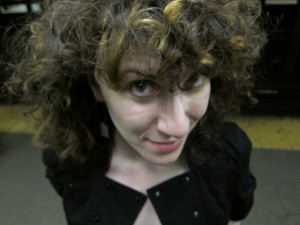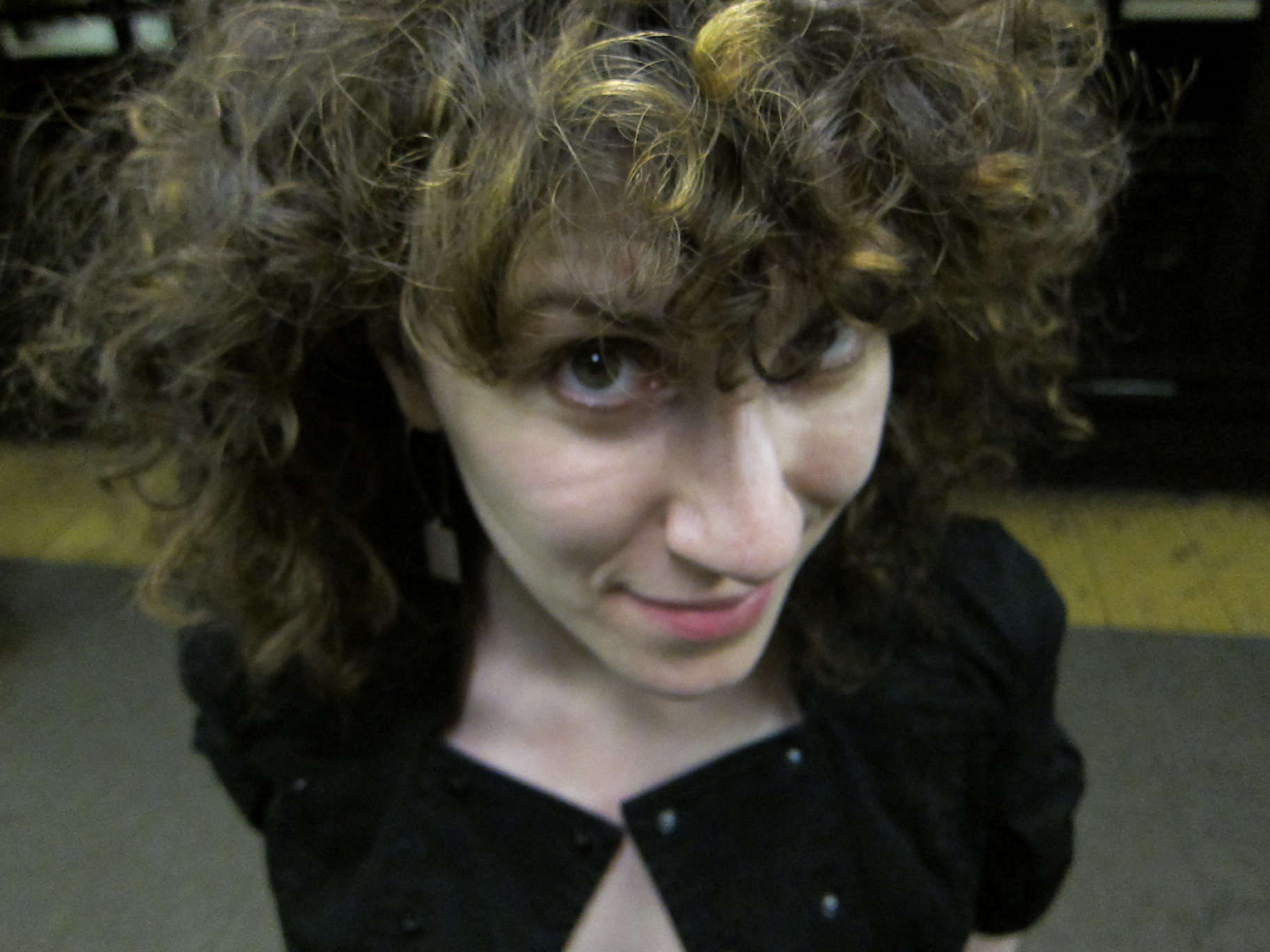 My last post, about the weird prejudice in technical fields that the arts are easy and artists lacking intelligence, got a great response. It’s a difficult issue to talk about, and I’m glad that what I wrote hit home with some people. If I’m very lucky it’ll make it a little easier for a few of the people who read it to talk about this stuff.
My last post, about the weird prejudice in technical fields that the arts are easy and artists lacking intelligence, got a great response. It’s a difficult issue to talk about, and I’m glad that what I wrote hit home with some people. If I’m very lucky it’ll make it a little easier for a few of the people who read it to talk about this stuff.
I’m particularly grateful to two people who pointed out weaknesses in my argument, Emily Kalish and Henry Kandel, and to Lainie Fefferman, who made it shorter. This discussion happened over on facebook on a couple different threads, so I thought it would be good to bring some of it over here.
Henry Kandel’s point
Henry pointed out that I overreached significantly in one part of the argument. I could have just observed that in universities there aren’t the mechanisms to wash so many students out of intro humanities courses as there to wash them out of technical ones. That creates a system that pushes people out of the sciences and into the arts. As a simple argument about how universities teach the point is clear enough: seeing that it’s harder to get an F in freshman art history than in freshman calculus, people presume that the arts are easier than the sciences. Done.
The argument runs perfectly well that way, but I went and got my grubby paws all over the nature of creativity. That was very silly of me. I argued that it’s actually impossible to tell talented from untalented students at 18 and 19. That’s obviously wrong. I put this point next to an observation that writers tend to achieve stuff later in life than mathematicians. It probably also has something to do with the fact that good pedagogy in the arts involves a lot more encouragement and emotional support than people normally get in into chemistry. There may be something to all that, but it’s completely useless to the argument and very difficult to defend. Out it goes!
Here’s a link to the Facebook thread in case your account gives you permission to see it.
Emily Kalish’s point
I spent the whole argument describing some of the lamer aspects of the relationship between artsy and technical people, and Emily did a great job describing some better parts of it:
To start with the obvious: not everyone thinks we suck. There certainly are many science-minded academics or profit-minded business people who feel that way, but there are also many people who look to artists with awe and envy because we spend our lives working on what we love, finding ways to reach people with what we most urgently feel the need to say, etc. Of course most of what we get paid for is not so lofty as all that, but even playing the most mindless gig, we’re still “playing” and we’re still making people happy! It’s really pretty great.
Emily also caught me thinking in exactly the way I was saying we shouldn’t think! Here’s what I wrote:
In my post I jumped up and down on the idea that artists are dumb, but I also conceded too easily the idea that people who leave the sciences for the arts might be dumb too. I think that’s a great place to tighten up the argument and make it clearer that what looks from the other side to be evidence of stupidity really isn’t at all. Of course, there are dumb people in the world, and an account of how people pick fields has to make some allowance for what happens to them, but I agree with your criticism of the piece, and I definitely take it to heart.
In case you can see it, and would like to read the whole thread, here’s the link. I’d recommend it – apart from everything else Emily has a great description of an artist’s life as rewarding and exciting, if not always remunerative.
And Lainie sums up my whole argument in about two seconds
Lainie said this further down the same thread:
The main point that I hadn’t thought of before, that I’m excited about, is more about the system than about the nature of the people who take part in it: it’s easy to fail a math course, but I think often harder to fail a poetry course, even though both are demanding beautiful fields. I’d never thought of it that way, but I bet that’s where a lot of people’s prejudices come from.
Yup. That’s basically it. This weird prejudice about artists probably has about 47 different causes. And like any prejudice it’s really hard to think about clearly, and even harder to really fight.
But this difference in how US universities treat the training in technical and non-technical subjects seems to have something to do with it. There’s almost certainly more to it, and I’d love to hear any other ideas for where this all comes from, especially if there are suggestions for how to deal with the attitude.
Lastly
Having spilled so much ink on this small prejudice today I really need to finish by saying that we have much more important prejudices to be fighting than this one. I think that’s fairly obvious.

So a (slightly rambling) summary of my issues with this discussion:
While there a lot of good points on both sides of this argument, one of the biggest holes in this discussion to me is the falsely laid dichotomy between “artists” and “technicals.”
I don’t mean to blur the taxonomy arbitrarily, but I think the main problem is that the separation between the engineers and the artists is altogether unclear. I’ve seen musicians work on their art with a mathematical precision – to the point where there is, in fact, a “right” answer to what they’re doing and I’ve talked to engineers that occasionally have no idea how they do what they do, they just feel it.
As a producer and occasional arts administrator, I find myself looking at this discussion and asking “what about the rest of us?” But even that creates just another false line between various people involved in all careers. In fact, I think that in any field – and even any art – there is distributed effort between “technical” people and “artistic” people (if you don’t believe me, ask a Director of Photography or an Architect which side they’d fall on. I doubt they’d answer the question readily).
I’m not sure that the line you draw can separate us in terms of intelligence, simply in inclination. And even then, it’s a very fluid difference between one type and the other. I have a strong feeling that in this case all of the discussion above starts from a socially defined difference between these types and tries to explain it rather than addressing phenomena we’ve experienced and are addressing.
Hey Matt,
In short, I totally agree with you. The Artist/Technical division sucks. Not only does it create a false dichotomy, it also lumps together engineers and pure scientists, as well as lumping comparative literature grad students in with painters. It’s not a clear distinction at all. Also, the whole idea of judging people on relative intelligence instead of interests is a messy one. But I do think I need to stand my ground on the existence of stupid people.
The whole point of the exercise is to try to grapple with the prejudice that pursuits in the humanities are less difficult than pursuits in the sciences, and that the people in the humanities are the dumb ones. Does everyone think like this? obviously not. But do some people? Yeah. Why? well, it wouldn’t be worth blogging about if I didn’t at least try to answer that one. So I’ve got to stick my neck out a little bit, and use some clumsy distinctions to get at my main point without accidentally writing a book of armchair sociology.
Thanks for chiming in and pointing this out!
Hi Kevin,
I don’t know you, but I know your brother through mathematics. You may infer (accurately) from this that I am a mathematician.
In my opinion, mathematics (past the graduate level, at least) is the most artistic of the technical subjects. True, one can tell right answers from wrong answers, but there are often many right answers, not all equally meritorious, since a certain way of looking at a problem might turn out to be especially insightful and catalyze further progress. The quest for the “best” answer (or any answer at all, in the case of unsolved problems) often requires enormous creativity and ingenuity. Many famous results in mathematics are cultural and historical (and occasionally even literary) landmarks in their own right, and possess a sublime elegance comparable to that of the finest paintings, music, or literature.
It goes without saying that I don’t believe in a strict artistic/technical dichotomy. I consider mathematics to be equal parts of both!
On the other hand, there is definitely a distinction (or at least a continuum) between technical subjects and artistic subjects, even if we can’t pin down exactly where the division lies. Even if the distinction is artificial, people do think in those terms, and we have to acknowledge that view.
A big part of the problem is that many humanities students themselves, early in their studies, actually think that artistic pursuits are easier than technical endeavors. In other words, the bias that “humanities are less difficult” is not just confined to scientific people. A lot of humanities majors experience a shock when they enter the real world and find that it’s just as hard, if not harder, to make a living in poetry or medieval history as it is in physics. Since these students chose their majors based on faulty information, we end up with a classic case of market failure, with the resulting economic consequences: shortages of engineers and oversupply of art students.
I agree with you that artistry at the highest level is really hard. (My wife is a pianist, so I have eyewitness experience.) But I also think (potential) humanities students, not science majors, are the people who most urgently need to understand this message. We need to emphasize the lack of job prospects in these subjects. Young people have a hard time understanding the long-term consequences of their decisions, and it is clear (to me, based on my cursory knowledge of economics) that many of the artists trying to eke out a living on minimal income made the wrong decision.
I’m very grateful for the huge range this discussion is taking on. And I’m lucky to be able to say again I completely agree with you.
One more, possibly final, post in this discussion: http://kevinclarkcomposer.com/2011/11/more-on-arts-and-sciences/